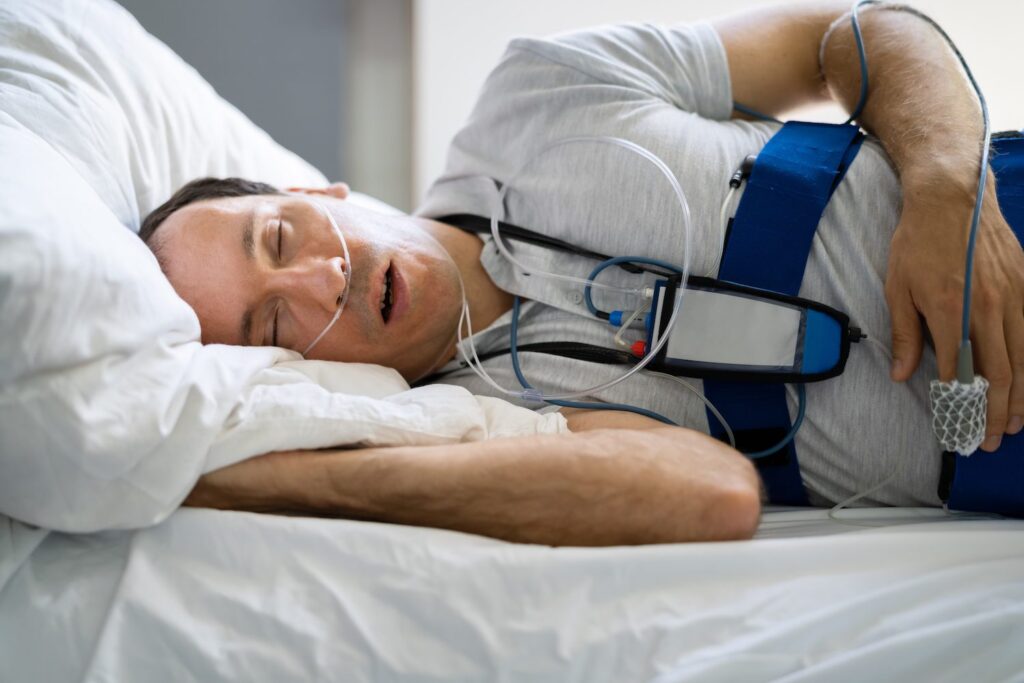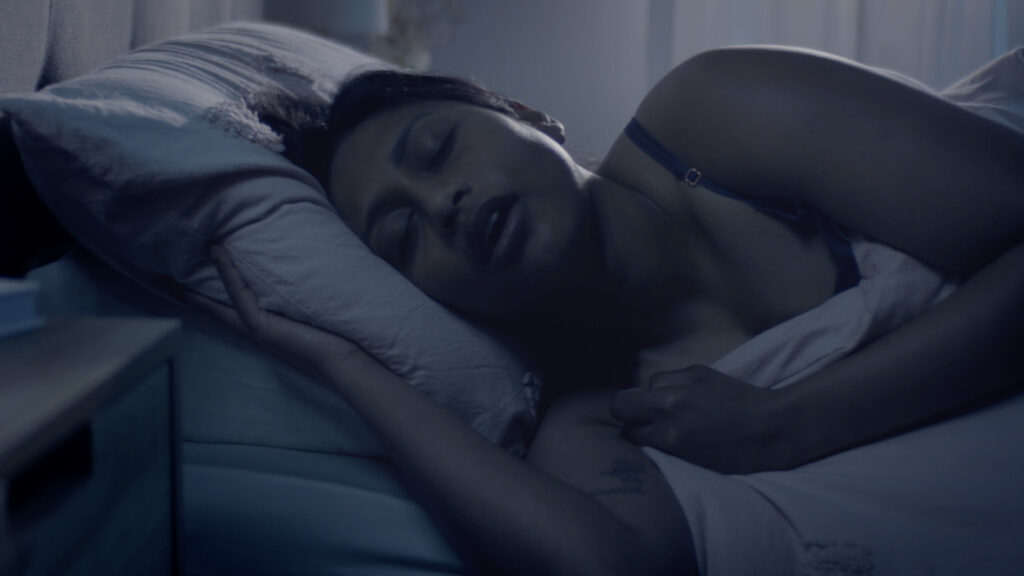Sleep apnea is a common sleep disorder that affects many people in Australia. It is characterized by a recurring pattern of interrupted breathing during sleep, leading to poor sleep quality and various health problems. If left untreated, sleep apnea can increase the risk of developing serious conditions such as heart disease, stroke, and diabetes. To effectively manage and treat sleep apnea, it is crucial to undergo proper testing and diagnosis. This article aims to provide a comprehensive overview of sleep apnea testing options available in Australia, highlighting their benefits, costs, and effectiveness.
Understanding Sleep Apnea
Sleep apnea is a complex sleep disorder that affects individuals by causing brief pauses in breathing during sleep. These pauses, known as apneas, can range from a few seconds to several minutes and can occur multiple times throughout the night, disrupting the sleep cycle and overall quality of rest. The condition is categorized into three main types: obstructive sleep apnea, central sleep apnea, and complex sleep apnea syndrome, each with its own distinct characteristics and underlying causes. Obstructive sleep apnea, the most prevalent form, occurs when the muscles in the throat relax and obstruct the airway, leading to breathing difficulties and interrupted sleep patterns.
In conclusion, sleep apnea is a prevalent sleep disorder in Australia that can have serious health implications if left untreated. Proper testing and diagnosis are essential for effective treatment and management. The options for sleep test Australia include home sleep tests, in-lab sleep studies, and nocturnal polysomnography. Each testing method has its advantages and considerations regarding accuracy, patient comfort, and convenience. The costs associated with sleep apnea testing can vary depending on the type of test and healthcare provider, and individuals should consider both public and private healthcare options as well as health insurance coverage. By exploring sleep apnea testing options, individuals can take an active role in their sleep health and overall well-being.
In contrast, central sleep apnea is a less common subtype that stems from a malfunction in the brain’s signaling mechanism responsible for controlling breathing muscles. This disruption results in a lack of coordination between the brain and respiratory muscles, leading to irregular breathing patterns during sleep. Additionally, complex sleep apnea syndrome presents a unique combination of both obstructive and central sleep apnea features, posing a more intricate challenge in diagnosis and treatment.
What is Sleep Apnea?
Sleep apnea is a multifaceted sleep disorder characterized by recurrent interruptions in breathing while asleep. These interruptions, or apneas, can manifest due to various factors, such as airway blockages in obstructive sleep apnea or neural communication issues in central sleep apnea. Understanding the underlying mechanisms of each type of sleep apnea is crucial in determining the most effective treatment approach tailored to individual needs and symptoms.
Symptoms and Risks of Sleep Apnea
Individuals with sleep apnea may experience a range of symptoms, including disruptive snoring, excessive daytime drowsiness, morning headaches, irritability, and difficulties with concentration and memory. These symptoms can significantly impact daily functioning and overall quality of life if left unaddressed. Moreover, untreated sleep apnea can elevate the risk of developing serious health conditions, such as hypertension, cardiovascular diseases, stroke, and metabolic disorders like type 2 diabetes. Recognizing the signs and risks associated with sleep apnea is essential in promoting early detection and intervention to mitigate potential health complications.

The Importance of Sleep Apnea Testing
Early detection and diagnosis of sleep apnea are crucial for effective treatment and management. Sleep apnea testing allows healthcare professionals to assess the severity of the condition and develop a personalized treatment plan. Testing also helps identify any underlying health issues that may contribute to sleep apnea.
Furthermore, sleep apnea testing plays a vital role in monitoring the effectiveness of treatment over time. By regularly undergoing testing, individuals can track their progress and make necessary adjustments to their treatment plan with the guidance of healthcare professionals. This proactive approach can lead to improved outcomes and better overall health.
Early Detection and Diagnosis
Early detection of sleep apnea can help prevent the progression of the condition and reduce the risk of developing serious health complications. Sleep apnea testing allows healthcare professionals to accurately diagnose the type and severity of sleep apnea and recommend appropriate treatment options.
Moreover, early diagnosis through sleep apnea testing can lead to improved quality of life. By addressing sleep apnea promptly, individuals can experience better sleep, increased energy levels, and enhanced cognitive function. These improvements can have a positive impact on daily activities and overall well-being. Learn more about cognitive function on https://www.health.harvard.edu/mind-and-mood/what-is-cognitive-reserve
Preventing Serious Health Complications
By undergoing sleep apnea testing, individuals can take proactive measures to prevent serious health complications associated with untreated sleep apnea. Proper diagnosis and treatment can significantly reduce the risk of developing conditions such as heart disease, stroke, and diabetes.
Additionally, sleep apnea testing can uncover other related health issues that may require attention. Healthcare professionals can use the results of testing to identify comorbidities such as hypertension or obesity, which can impact the management of sleep apnea. Addressing these underlying conditions in conjunction with sleep apnea treatment can lead to comprehensive care and improved health outcomes.
Different Types of Sleep Apnea Tests
When it comes to diagnosing sleep apnea, there are several types of tests available in Australia. These tests range from convenient home-based options to comprehensive in-lab sleep studies. The choice of test depends on various factors, including the suspected severity of sleep apnea and individual preferences.
Home Sleep Tests
Home sleep tests have become increasingly popular in recent years. These portable devices allow individuals to monitor their sleep patterns in the comfort of their own homes. The tests typically measure parameters such as airflow, oxygen levels, heart rate, and body movements to detect signs of sleep apnea. Not only are home sleep tests convenient, but they are also cost-effective, providing valuable diagnostic information without the need for a visit to a sleep clinic.
Imagine being able to sleep in your own bed while still getting the information you need to address your sleep apnea concerns. Home sleep tests make this possible, offering a level of comfort and convenience that traditional in-lab sleep studies cannot match.
In-Lab Sleep Studies
While home sleep tests are a great option for many individuals, there are cases where more comprehensive data is needed. In-lab sleep studies involve spending a night in a sleep clinic or hospital, where healthcare professionals can monitor various aspects of sleep. This includes brain activity, eye movements, heart rate, and oxygen levels.
During an in-lab sleep study, you’ll find yourself in a comfortable room designed to promote relaxation and sleep. Highly trained professionals will attach sensors to your body to monitor your physiological responses throughout the night. While it may be a bit less convenient and more expensive than a home sleep test, an in-lab sleep study provides a wealth of information that can be particularly useful for complex cases or when additional data is needed beyond what a home sleep test can provide.
Nocturnal Polysomnography
Nocturnal polysomnography is a type of in-lab sleep study that takes the monitoring to the next level. It involves monitoring multiple physiological parameters simultaneously during sleep, providing a detailed evaluation of sleep stages and abnormalities. This comprehensive test measures brain waves, eye movements, muscle activity, heart rate, and breathing patterns.
For individuals with complex sleep disorders or those who require a thorough evaluation, nocturnal polysomnography is often the test of choice. It allows healthcare professionals to gather a wealth of information that can aid in the accurate diagnosis and treatment of sleep apnea.
So, whether you opt for the convenience of a home sleep test or the comprehensive data provided by an in-lab sleep study, there are options available to help you get the answers you need. Remember, diagnosing and treating sleep apnea is crucial for improving your overall health and well-being.

Evaluating the Effectiveness of Sleep Apnea Tests
When choosing a sleep apnea testing method, it is important to consider factors such as accuracy, patient comfort, and convenience. Evaluating the effectiveness of different testing methods can help individuals make informed decisions regarding their sleep apnea diagnosis. To read more about effectiveness click here.
Furthermore, it is crucial to understand that the effectiveness of sleep apnea tests can also be influenced by factors such as the severity of the condition, underlying health issues, and individual sleep patterns. For instance, individuals with mild to moderate sleep apnea may find home sleep tests to be sufficient for diagnosis, while those with severe sleep apnea may require the comprehensive monitoring provided by in-lab sleep studies.
Accuracy of Different Testing Methods
Studies have shown that both home sleep tests and in-lab sleep studies can provide accurate results in diagnosing sleep apnea. However, it is important to note that home sleep tests may not be as comprehensive as in-lab sleep studies and may have limitations in detecting certain sleep disorders or complexities. Therefore, the choice between these methods should be made based on individual circumstances and healthcare professional recommendations.
Moreover, advancements in technology have led to the development of portable monitoring devices that offer a middle ground between home sleep tests and in-lab studies. These devices can provide detailed data on breathing patterns, oxygen levels, and sleep quality, offering a more comprehensive assessment compared to traditional home tests.
Patient Comfort and Convenience
Home sleep tests offer the advantage of convenience and the ability to sleep in a familiar environment. They also eliminate the need for spending a night at a sleep clinic or hospital. However, in-lab sleep studies may be necessary for individuals who require more comprehensive monitoring or have complex sleep apnea cases that require specialized attention.
Additionally, it is important to consider the impact of environmental factors on the accuracy of sleep apnea tests. For example, noise levels, room temperature, and sleeping position can all affect the quality of data collected during a sleep study. Ensuring a quiet and comfortable sleep environment can help optimize the accuracy of test results and provide healthcare professionals with valuable insights into an individual’s sleep patterns.
Read more: Why You Should Consider a Sleep Apnea Test in Adelaide
Sleep Apnea Testing Costs in Australia
The costs associated with sleep apnea testing in Australia vary depending on the type of test and the healthcare provider. It is important to consider both public and private healthcare options, as well as the coverage provided by health insurance policies.
Public vs. Private Healthcare Costs
Public healthcare facilities in Australia may offer sleep apnea testing services at reduced costs, but there may be longer wait times for appointments and limited availability of testing options. Private healthcare providers generally offer more flexibility in terms of scheduling and choice of testing methods, but costs may be higher. Individuals should consider their personal preferences and financial circumstances when deciding between public and private healthcare options.
Health Insurance Coverage for Sleep Apnea Testing
Many health insurance policies in Australia provide coverage for sleep apnea testing. However, the extent of coverage, including the type of test covered and associated costs, may vary. It is important for individuals to review their health insurance policies and consult with their insurance providers to understand the coverage options and any out-of-pocket expenses.

